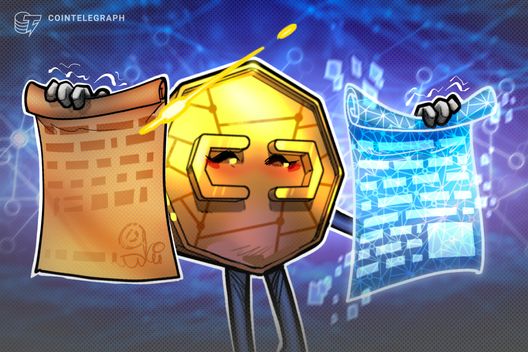
Opinion by: Aaron Basi, head of product at IoTeX
With the recent passage of the GENIUS Act, the USA has taken its first actual step towards regulating crypto nationally. The invoice focuses on stablecoins, establishing reserve guidelines, audits and licensed issuers. It is a milestone for the trade. If lawmakers need to help the subsequent wave of innovation, they can not cease right here.
One of many fastest-growing sectors, decentralized bodily infrastructure networks, or DePINs, nonetheless lacks a authorized framework .
DePIN will not be about hypothesis or NFTs. It entails constructing real-world infrastructure by way of community-owned {hardware}. Folks contribute antennas, sensors or exhausting drives and earn token rewards. These programs help companies like wi-fi connectivity, mapping and decentralized storage.
Not like many blockchain use circumstances, DePIN is already operational and rising quick.
DePIN is scaling sooner than regulation
Tasks like Glow have surpassed $15 million in income, whereas Geodnet experiences over $1 million in annual recurring income. DePIN protocols throughout the ecosystem collectively generate over $250 million in income. These usually are not pilots; they’re functioning networks delivering worth to customers and contributors.
They nonetheless lack regulatory readability. Not like stablecoins, which at the moment are ruled by outlined federal guidelines, DePIN tasks function in a grey zone. That uncertainty leaves customers, builders and buyers uncovered.
The regulatory gaps have gotten more durable to disregard
DePIN programs depend on real-world knowledge and infrastructure. They don’t match neatly into telecom, cloud computing or crypto classes. This makes present legal guidelines troublesome to use.
Many DePIN protocols rely upon units that collect and share environmental or location-specific info. There are not any clear requirements round what knowledge could be collected, the way it needs to be saved or who owns it. With out this, customers could lose belief and choose out.
Compensation is one other unresolved problem. Persons are paying out-of-pocket to deploy {hardware}, however there are not any baseline guidelines on how they need to be rewarded. If incentives dry up or tokenomics shift, contributors are left holding threat with out safeguards.
Associated: Blockchain and AI could fuel $3.5T DePIN market boom by 2028: WEF
Governance presents its personal problem. Many DePIN tasks declare decentralization, but key selections stay within the arms of core groups. If these programs will serve public pursuits, they should be clear and accountable.
DePIN deserves considerate regulation
The GENIUS Act proved that crypto regulation doesn’t need to be damaging. It affords a basis for stablecoins with out stifling innovation. DePIN deserves a equally nuanced method.
DePIN differs from monetary tokens. It exists on the intersection of {hardware}, software program and companies. This hybrid nature means it wants a tailor-made framework. It shouldn’t be handled like decentralized finance (DeFi) or stablecoins.
What’s wanted is a definition of what qualifies as a DePIN protocol. There needs to be requirements for knowledge possession, privateness, contribution monitoring and reward mechanisms. Clear governance guidelines are additionally essential to constructing belief and accountability.
An opportunity for the US to guide
DePIN has the potential to increase infrastructure in underserved areas, allow smarter cities and return possession of important programs to communities. To achieve that scale, the sector wants authorized readability.
Traders will hesitate with out regulatory certainty. Communities will resist becoming a member of programs that lack person protections. Builders could pause progress for concern of future penalties. Momentum depends upon clear steerage.
Now that stablecoins have a authorized framework, DePIN needs to be subsequent.
It’s time to help real-world innovation
Congress and regulators have a possibility to form the way forward for decentralized infrastructure. DePIN builders are able to collaborate. What’s wanted now could be a coverage framework that helps transparency, innovation and person safety.
The GENIUS Act was a powerful first step. It shouldn’t be the final. It’s time to acknowledge the promise of bodily infrastructure that’s constructed and operated by the individuals who use it.
DePIN is right here. It’s rising. And it belongs within the regulatory dialog.
Opinion by: Aaron Basi, head of product at IoTeX
This text is for basic info functions and isn’t supposed to be and shouldn’t be taken as authorized or funding recommendation. The views, ideas, and opinions expressed listed here are the writer’s alone and don’t essentially mirror or signify the views and opinions of Cointelegraph.












